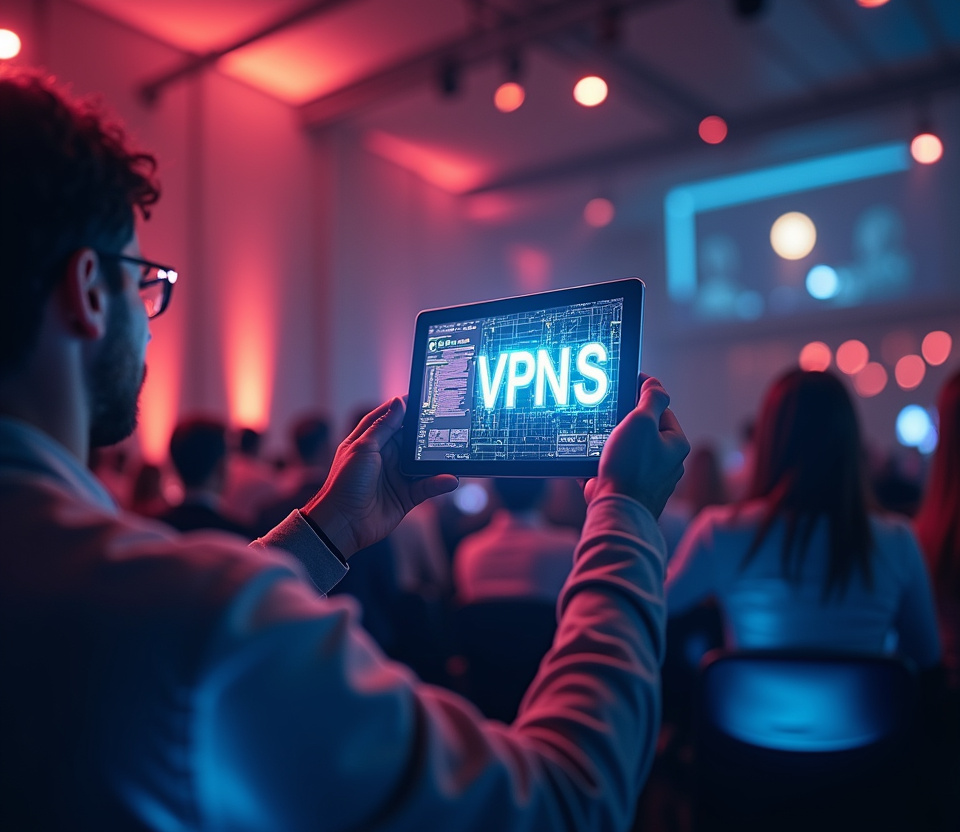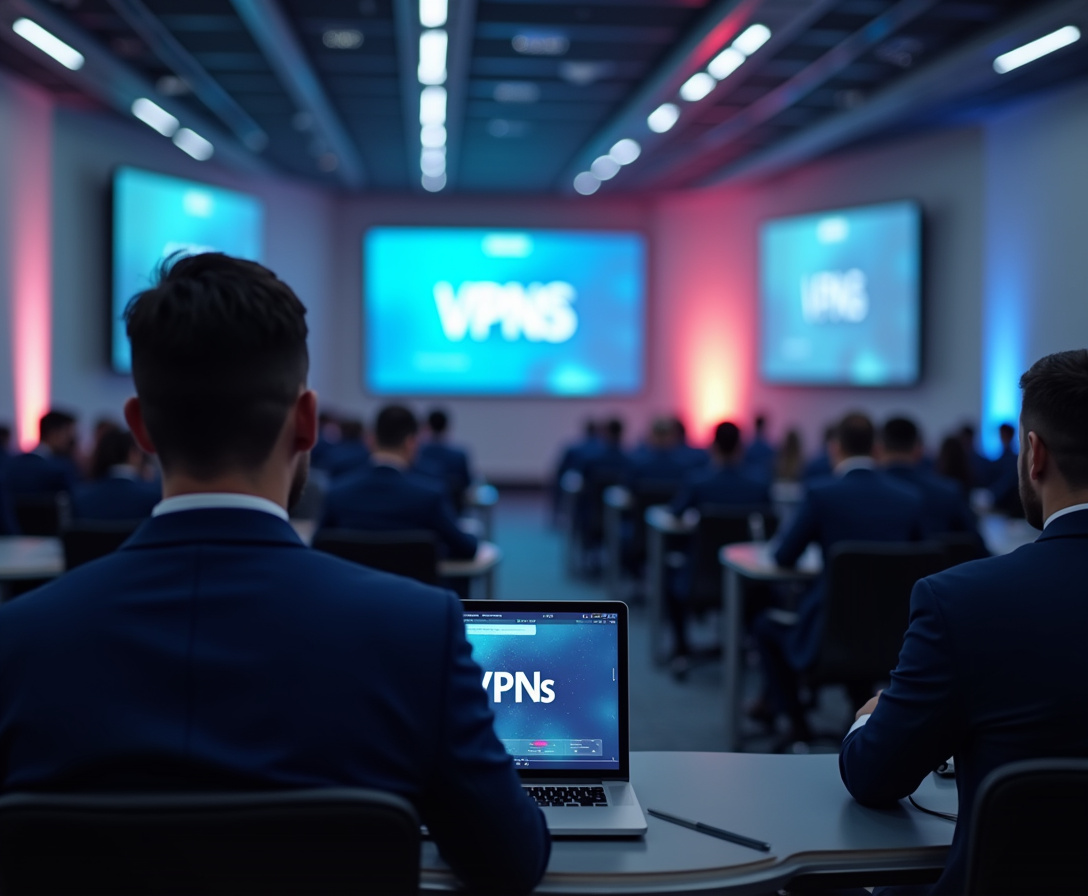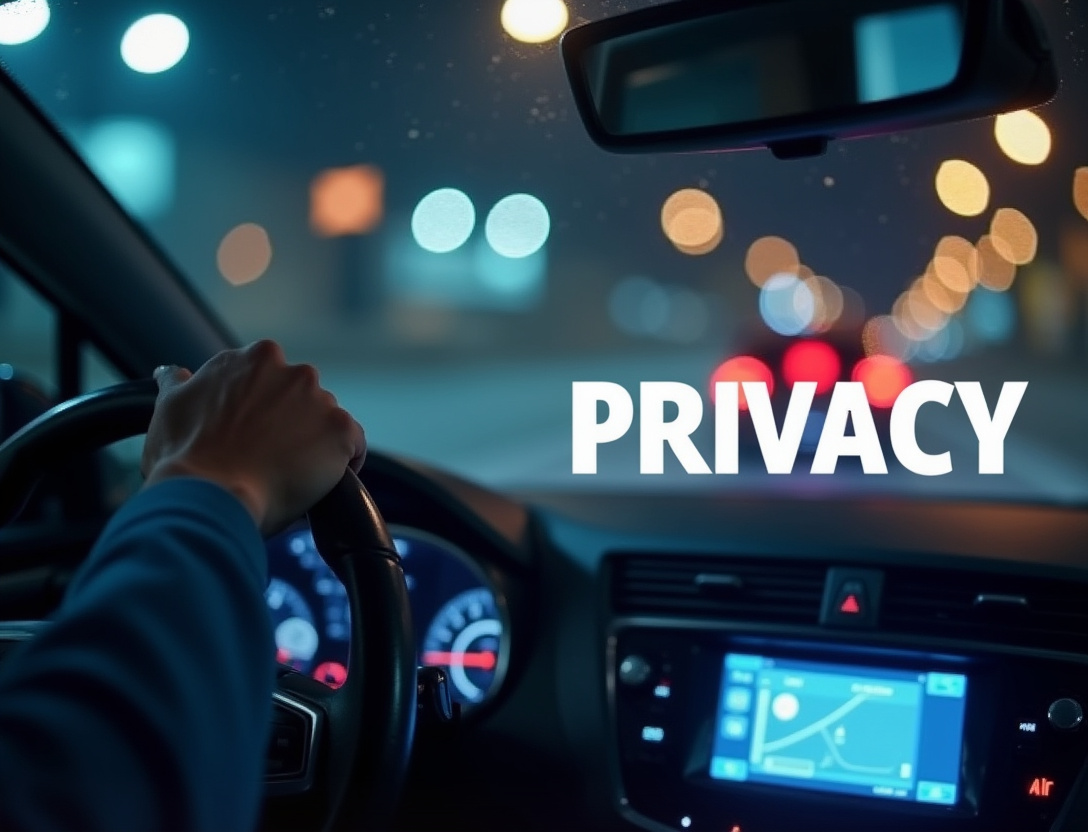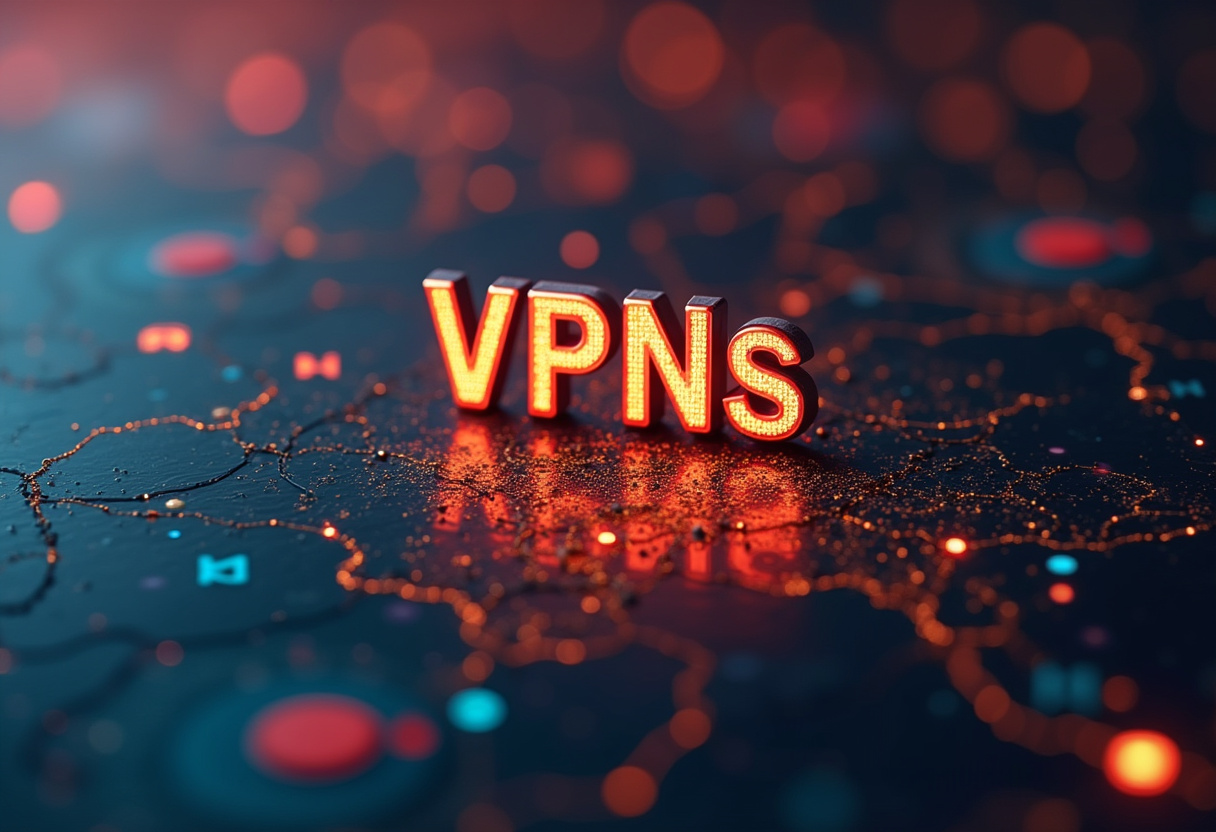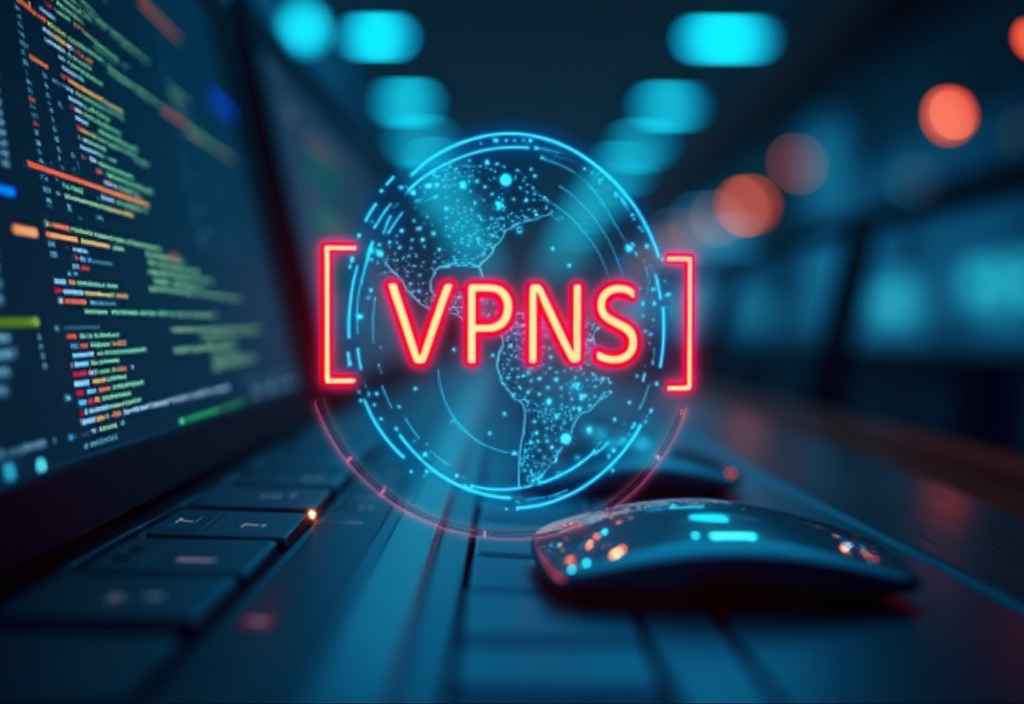VPNs for Event Tech Providers: Securing Digital Platforms
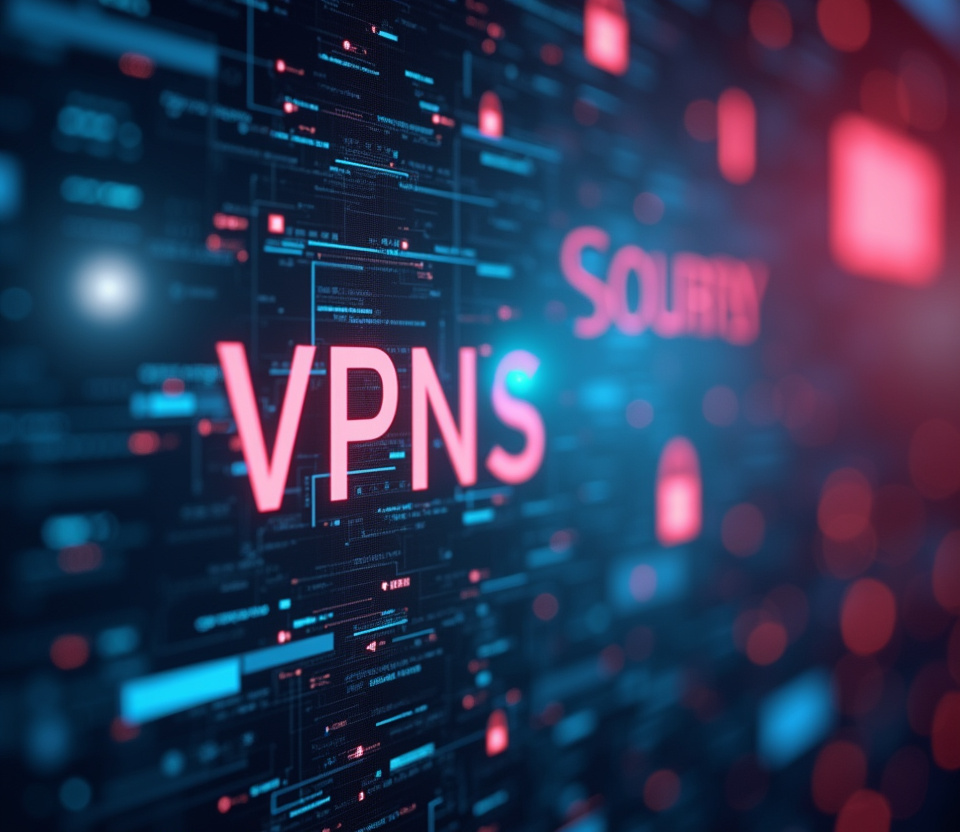
Table of Contents
VPNs for Event Tech Providers: Securing Digital Platforms
The event technology landscape is rapidly evolving, with digital platforms at the heart of modern event experiences. From seamless online registration and interactive virtual environments to sophisticated data analytics and personalized attendee engagement, technology is revolutionizing how events are organized and experienced. However, this digital transformation also brings significant cybersecurity challenges.
Event tech providers handle vast amounts of sensitive attendee data, including personal information, payment details, and behavioral insights. Protecting this data from breaches and ensuring the secure operation of digital platforms are paramount. In this context, Virtual Private Networks (VPNs) have emerged as a critical tool for event tech providers looking to bolster their digital platform security.
A VPN creates a secure, encrypted connection over a public network, like the internet, masking the user's IP address and safeguarding data transmitted between the user's device and the VPN server. This "tunnel" protects confidential information from interception and unauthorized access, enhancing both attendee data protection and operational security. The necessity of event tech VPNs stems from several key factors.
Firstly, the event industry is an attractive target for cybercriminals due to the high value of the data it handles. Attendee information can be used for identity theft, financial fraud, or targeted phishing attacks. A data breach can result in significant financial losses, legal liabilities, and reputational damage for event tech providers, undermining trust and hindering future business opportunities.
Secondly, the increasing reliance on remote event management teams introduces new security vulnerabilities. Event organizers, tech support staff, and other personnel often access sensitive systems and data from various locations, using potentially insecure networks. A VPN ensures that all data transmitted between these remote users and the organization's servers is encrypted and protected, regardless of the network being used.
Thirdly, the complexity of modern event technology ecosystems poses a significant challenge. Event platforms often integrate with various third-party services, such as payment gateways, email marketing platforms, and social media APIs. Each integration point represents a potential security risk, as vulnerabilities in one system can be exploited to gain access to others.
A VPN can help to isolate and protect sensitive data flows between these various components, reducing the overall attack surface. Finally, the growing sophistication of cyber threats necessitates a proactive and multi-layered approach to security. Firewalls, intrusion detection systems, and antivirus software are essential, but they are not always sufficient to protect against advanced attacks.
A VPN adds an extra layer of security by encrypting data in transit, making it more difficult for attackers to intercept and decipher sensitive information. In essence, event tech VPNs are no longer a luxury but a necessity for organizations committed to protecting attendee data, maintaining operational security, and fostering trust in the digital event experience. By providing a secure and encrypted connection, a VPN helps event tech providers mitigate the risks associated with cyber threats, remote access, and complex technology integrations, ultimately safeguarding the digital platforms that power modern events.
This proactive approach to security is crucial for maintaining a competitive edge and building long-term relationships with clients and attendees alike. The decision to implement a VPN should be viewed as an investment in the organization's overall security posture and a commitment to protecting the privacy and security of all stakeholders involved in the event ecosystem.
The landscape of digital platform security in the event technology industry is becoming increasingly complex. Event tech providers manage a wide array of sensitive data, including personally identifiable information (PII) such as names, email addresses, payment details, and even behavioral data collected during event interactions. This data is a valuable target for cybercriminals, who can exploit vulnerabilities in event platforms to steal information, disrupt operations, or even hold systems ransom.
The consequences of a data breach can be devastating, leading to significant financial losses, reputational damage, and legal liabilities. Beyond direct financial repercussions like fines and legal settlements, the indirect costs, such as customer churn and brand erosion, can be far more substantial in the long run. A single, well-publicized data breach can irrevocably damage a company's reputation, making it difficult to attract new clients and retain existing ones.
Operational security is equally critical. Event tech providers rely on a complex network of servers, databases, and applications to deliver seamless event experiences. Any disruption to these systems can impact event execution, attendee satisfaction, and the overall success of the event.
For example, a Distributed Denial of Service (DDoS) attack targeting a virtual event platform could prevent attendees from accessing the event, causing widespread frustration and undermining the event organizer's credibility. System outages during critical event moments, such as keynote speeches or live performances, can lead to irreversible negative publicity and significant financial losses, especially if refunds or compensation are required. These disruptions can be caused by malicious attacks, but also by vulnerabilities in the system that can lead to crashes and malfunctioning.
Furthermore, the increasing prevalence of remote event management teams introduces new security challenges. With staff accessing critical systems from various locations and networks, the risk of unauthorized access and data leakage increases significantly. Without appropriate security measures, such as a robust event tech VPN, sensitive data may be transmitted over unsecured networks, making it vulnerable to interception.
Public Wi-Fi networks, often used by remote teams, are particularly risky, as they are frequently targeted by hackers seeking to intercept unencrypted data. The challenge of ensuring that all remote employees adhere to strict security protocols and maintain a secure working environment further complicates the situation. The threat landscape continues to evolve, with cybercriminals constantly developing new and sophisticated attack methods.
Event tech providers must remain vigilant and proactive in their security efforts, continuously assessing their vulnerabilities and implementing appropriate safeguards. This includes not only technical measures like VPNs and firewalls but also organizational policies and procedures designed to mitigate human error and promote a security-conscious culture. Investing in comprehensive training programs for staff, implementing strong authentication protocols (like multi-factor authentication), and conducting regular security audits are all essential components of a robust digital platform security strategy.
Regular penetration testing, where ethical hackers attempt to identify and exploit vulnerabilities in the system, is also crucial for identifying weaknesses before malicious actors can exploit them. The challenge lies in balancing security with usability, ensuring that security measures do not impede the user experience or hinder the efficient operation of event technology platforms. Overly restrictive security measures can frustrate attendees and make it difficult for event organizers to manage their events effectively.
The key is to implement security measures that are both effective and transparent, minimizing disruption to the user experience while providing a high level of protection against cyber threats. This delicate balance requires careful planning, a deep understanding of the risks involved, and a commitment to continuous improvement. The best security strategies are those that are seamlessly integrated into the event technology ecosystem, providing a robust defense without compromising usability or performance.
A VPN provides a secure and encrypted connection between a user's device and a remote server, effectively creating a private tunnel for data transmission. This encryption protects data from being intercepted by unauthorized parties, such as hackers or eavesdroppers, making it a powerful tool for enhancing digital platform security. The encryption process typically involves algorithms that scramble data into an unreadable format, requiring a decryption key to restore it to its original form.
This ensures that even if data is intercepted, it cannot be understood without the correct key, which is only possessed by the sender and receiver. The type of encryption protocol used by a VPN is a critical factor in determining its security level, with more robust protocols offering greater protection against sophisticated attacks. For event tech providers, the benefits of implementing an event tech VPN are multifaceted.
Firstly, it ensures attendee data protection by encrypting all data transmitted between attendees' devices and the event platform's servers. This is particularly critical for sensitive data like payment information and personal details, which are often exchanged during registration and online transactions. By using a VPN, event tech providers can significantly reduce the risk of data breaches and protect the privacy of their attendees.
This not only enhances attendee trust and satisfaction but also helps event tech providers comply with data privacy regulations like GDPR and CCPA, which impose strict requirements for protecting personal data. A VPN acts as a crucial layer of defense against data theft and unauthorized access, safeguarding attendee information from falling into the wrong hands. Secondly, a VPN enhances operational security by securing all data transmitted between internal systems and remote team members.
This is especially important for event management teams working remotely, as it protects sensitive data from being intercepted over unsecured networks. With a VPN in place, event tech providers can ensure that only authorized personnel have access to critical systems and data, reducing the risk of unauthorized access and data leakage. This centralized and controlled access is vital for maintaining the integrity and confidentiality of sensitive business information, such as financial reports, client databases, and strategic plans.
A VPN also facilitates secure collaboration among remote team members, enabling them to share files and communicate securely without the risk of data interception. Thirdly, a VPN can improve user experience by providing a more reliable and consistent connection to event platforms. This is particularly important for virtual events, where a stable internet connection is essential for a seamless viewing experience.
By routing traffic through a VPN server, event tech providers can often bypass network congestion and improve connection speeds, resulting in a smoother and more enjoyable experience for attendees. A VPN can also optimize network performance by selecting the most efficient route for data transmission, minimizing latency and improving overall responsiveness. This is particularly beneficial for attendees located in regions with poor internet infrastructure or those experiencing network congestion.
Furthermore, a VPN can help to circumvent geographic restrictions and censorship, allowing attendees from around the world to access event content and participate in virtual events. By masking the user's IP address, a VPN can make it appear as though they are located in a different country, enabling them to bypass regional blocks and access content that would otherwise be unavailable. This is particularly valuable for event organizers seeking to reach a global audience and provide an inclusive and accessible event experience for all attendees, regardless of their location.
However, it is important to note that not all VPNs are created equal. Event tech providers should carefully evaluate different VPN solutions and choose one that offers strong encryption, reliable performance, and a proven track record of security. Free or low-cost VPNs may not provide the same level of security as paid VPNs, and some may even collect user data and sell it to third parties.
Choosing a reputable and trustworthy VPN provider is crucial for ensuring the security and privacy of sensitive data. Factors to consider when selecting a VPN include the encryption protocols used, the location of the VPN server, the provider's logging policy, and its reputation for transparency and security. A thorough due diligence process is essential for selecting a VPN that meets the specific security needs of the event tech provider.
Implementing an event tech VPN effectively requires careful planning and execution. The first step is to conduct a thorough risk assessment to identify the specific security threats and vulnerabilities that need to be addressed. This assessment should consider factors such as the type of data being managed, the location of users accessing the system, the potential impact of a data breach, and the regulatory requirements that apply to the organization.
Identifying the specific risks allows for a tailored VPN implementation that addresses the most critical security concerns. This risk assessment should be an ongoing process, regularly reviewed and updated to reflect changes in the threat landscape and the organization's technology infrastructure. Next, it's crucial to select a VPN solution that aligns with the organization's specific needs and budget.
Factors to consider include the number of users, the required bandwidth, the level of encryption, and the availability of technical support. Evaluate different VPN protocols, such as OpenVPN, IKEv2/IPsec, and WireGuard, to determine which one offers the best balance of security and performance for the event tech platform. Consider VPN solutions that offer features like split tunneling, which allows users to route specific traffic through the VPN while other traffic is routed directly to the internet, optimizing bandwidth and performance.
Also, prioritize VPN providers with a clear no-logs policy, ensuring that user activity is not tracked or stored. The chosen VPN solution should also integrate seamlessly with existing security infrastructure, such as firewalls and intrusion detection systems. Configuration is a critical step.
All devices that will be accessing the event tech platform should be properly configured to connect to the VPN. This includes installing the VPN client software, configuring the appropriate settings, and testing the connection to ensure it is working correctly. User accounts should be created with strong passwords and multi-factor authentication enabled for added security.
Implement strict access control policies to limit user access to only the resources they need to perform their job functions. Regularly update VPN client software to patch security vulnerabilities and ensure compatibility with the latest operating systems and devices. An essential, and often overlooked, aspect is employee training.
Educate all users on the importance of using the VPN and following security best practices. Provide training on how to connect to the VPN, how to identify and report security threats, and how to protect their devices from malware and other security risks. Emphasize the importance of never sharing VPN credentials and following the organization's password policy.
Regular security awareness training can help to foster a security-conscious culture and reduce the risk of human error. Ongoing monitoring and maintenance are crucial for ensuring the long-term effectiveness of the VPN. Monitor VPN usage to identify any suspicious activity or unauthorized access attempts.
Regularly review VPN logs to detect and investigate security incidents. Performance should be frequently analyzed to identify and resolve any performance issues that may impact the user experience. Implement a process for patching security vulnerabilities and updating VPN software promptly.
Conduct regular security audits to assess the effectiveness of the VPN implementation and identify areas for improvement. A proactive approach to monitoring and maintenance helps to ensure that the VPN remains a reliable and effective security tool. Finally, develop a clear and comprehensive VPN policy that outlines the rules and guidelines for using the VPN.
This policy should address issues such as acceptable use, data privacy, security responsibilities, and consequences for violating the policy. Communicate the VPN policy to all users and ensure that they understand and agree to abide by its terms. A well-defined VPN policy provides a clear framework for responsible VPN usage and helps to minimize the risk of security incidents.
This policy should be regularly reviewed and updated to reflect changes in the organization's security needs and the evolving threat landscape.
In conclusion, securing digital platforms with event tech VPN solutions is no longer an option but a critical requirement for event technology providers. The escalating sophistication of cyber threats, coupled with the increasing sensitivity of attendee data and the growing reliance on remote event management teams, necessitates a robust and proactive approach to security. By implementing a VPN, event tech providers can significantly enhance their digital platform security, protect attendee data, ensure operational security, and improve the overall user experience.
However, the success of a VPN implementation hinges on careful planning, execution, and ongoing maintenance. The journey begins with a comprehensive risk assessment that identifies the specific security threats and vulnerabilities that need to be addressed. This assessment should inform the selection of a VPN solution that aligns with the organization's specific needs and budget.
Factors such as encryption protocols, server locations, logging policies, and integration with existing security infrastructure should be carefully considered. Configuration is paramount. All devices accessing the event tech platform must be properly configured to connect to the VPN, with strong passwords and multi-factor authentication enabled for added security.
Access control policies should be implemented to limit user access to only the resources they need. Equally important is employee training. Educate all users on the importance of using the VPN and following security best practices.
Provide training on how to connect to the VPN, how to identify and report security threats, and how to protect their devices from malware. A security-conscious culture is the strongest defense against cyber threats, and ongoing training is crucial for reinforcing this culture. Continuous monitoring and maintenance are essential for ensuring the long-term effectiveness of the VPN.
Monitor VPN usage for suspicious activity, review logs for security incidents, analyze performance for optimization opportunities, and promptly patch security vulnerabilities. A proactive approach to monitoring and maintenance helps to ensure that the VPN remains a reliable and effective security tool. Finally, a clear and comprehensive VPN policy is essential for establishing guidelines for responsible VPN usage.
This policy should address issues such as acceptable use, data privacy, security responsibilities, and consequences for violating the policy. Communicate the VPN policy to all users and ensure they understand and agree to abide by its terms. Looking ahead, the role of event tech VPN solutions is likely to become even more critical as the event technology landscape continues to evolve.
The increasing integration of artificial intelligence (AI) and machine learning (ML) into event platforms will create new security challenges, as these technologies can be vulnerable to adversarial attacks. The growing use of blockchain technology for secure ticketing and event authentication will also require robust security measures to protect against fraud and manipulation. Event tech VPNs will play a key role in securing these emerging technologies and ensuring the integrity of the digital event experience.
By embracing a proactive and comprehensive approach to digital platform security, event tech providers can build trust with their clients and attendees, foster innovation, and thrive in an increasingly competitive and challenging environment. The investment in event tech VPN solutions is not just an investment in security; it is an investment in the long-term success and sustainability of the event technology industry. The future of events is digital, and securing that digital future requires a commitment to robust security measures, including the strategic implementation of event tech VPN solutions.
Stay Updated
Get the latest VPN news, tips, and exclusive deals to your inbox.
